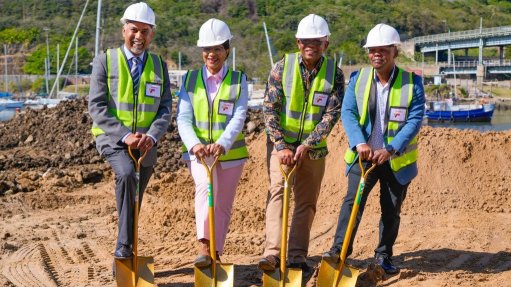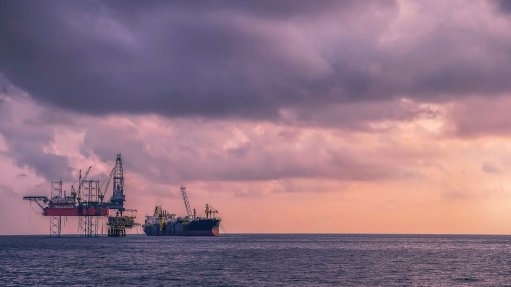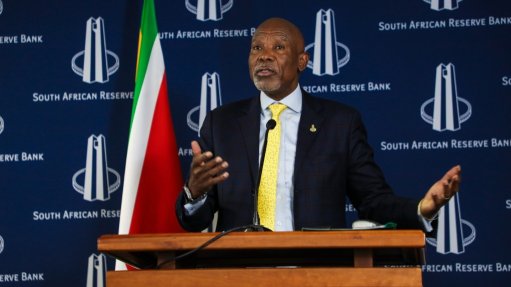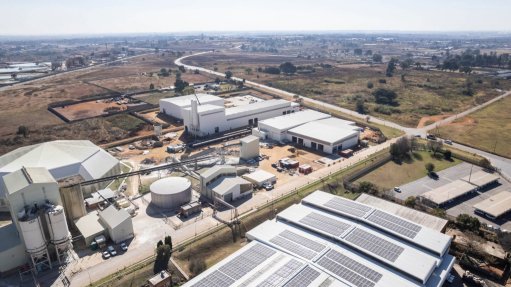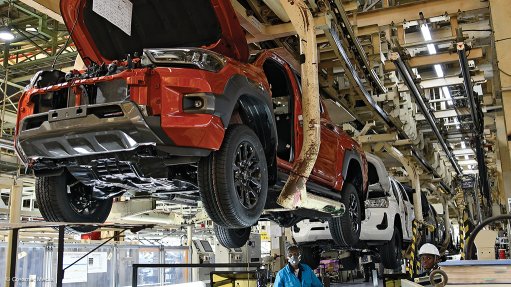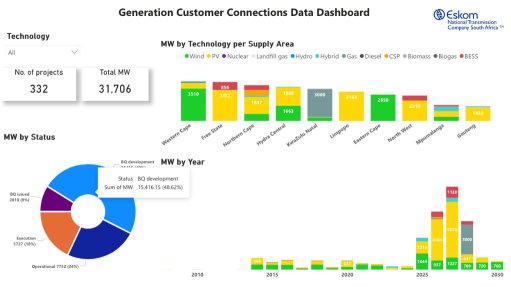Lack of ‘active enforcement’ of the law to tackle illegal mining decried

Malan Scholes Attorneys director Lia Bolz discusses illegal mining in South Africa, its impacts and the implementation of the MPRDA. Camerawork: Shadwyn Dickinson. Editing: Shadwyn Dickinson
The intervention of government and the South African Police Service (Saps) is crucial for enforcing the implementation of the Mineral and Petroleum Resources Development Act (MPRDA), specifically in discouraging illegal mining activities and promoting safer and sustainable alternatives, states law firm Malan Scholes Attorneys director Lia Bolz.
The MPRDA was enacted in 2004 and regulates mining activities in South Africa. This legislation criminalises illegal mining and regulates the transfer of mineral and petroleum rights.
Bolz stresses, however, that there have been various media reports recently highlighting the impact of illegal mining on communities and public safety. There is an urgent need for robust intervention, she says.
“We have the laws to be enforced, but we don’t see any active steps being taken by the Department of Mineral Resources and Energy (DMRE). There also isn’t a commitment from Saps to take active steps. Everything being done is very reactionary.
“We’re also not just dealing with illegal miners around Johannesburg. There are large-scale illegal mining operations happening throughout Mpumalanga, Limpopo and the North West.”
Without this active enforcement from the DMRE or Saps, she stresses that landowners and miners conducting legal mining operations are left to their own devices to prevent illegal mining.
This often involves increasing private security measures and approaching courts to be granted interdicts, both of which are still not adequate without support from the State.
“Requests are made to the DMRE to do inspections and issue directives, and there’s also active engagement with Saps to attend at site to try and deal with illegal operations”.
Bolz, however, emphasises that there is no willingness on the part of the DMRE or Saps to respond to these intervention requests.
She also stresses the need for the introduction of a specialised unit within Saps, with personnel who are trained to deal with illegal mining. This is particularly important in light of the use of illegal firearms by illegal mining syndicates.
In terms of the impacts of illegal mining in South Africa, Bolz notes that many of the individuals engaging in illegal mining are also victims of the illegal mining syndicates.
Not only are the miners often forced to enter underground mining areas without proper safety equipment, they also work with dangerous chemicals, such as cyanide and mercury, in uncontrolled environments.
The use of explosives and the mining activities themselves hold a risk not only for those involved in the illegal mining activities but surrounding communities, and could potentially result in subsidence and buildings collapsing.
She stresses the detrimental impact that unregulated mining has on the environment, and that illegal mining often occurs in areas that were previously mined but left unrehabilitated.
“From an economic perspective, because these areas are so unsafe, there won’t be economic development in those areas. This is in contrast to established mining operations, where there are clear economic benefits flowing into communities that reside around those mining operations,” she states.
Further, she points out that these activities do not generate royalties or taxes for the State.
“For well-established mining operations, when illegal miners enter these areas, it increases the costs significantly. “There’s a cost with removing illegal miners, whether it’s attending at court and having lawyers on brief, or enforcing court orders after the fact when you don’t have the support of Saps and have to rely on private security,” she adds.
No Need for Tweaks
Bolz notes that in addition to focusing on the enforcement of the MPRDA and related legislation, an increase in fines and penalties for being involved with illegal mining could possibly contribute to discouraging such activity.
“Penalties range between R200 000 and R500 000 in fines, and also terms of imprisonment, but that’s low relative to some of the other environmental legislation, where we’re looking at fines upwards of R10-million for specific offenses. That would be a useful amendment to the MPRDA”.
This would be useful, Bolz says, subject to the DMRE enforcing the MPRDA.
She notes that while artisanal and small-scale mining policies promulgated by the DMRE indicate an attempt by the department to regulate the artisanal mining industry, it has simply become too easy to mine illegally so there would be little to no incentive to apply for permits under the MPRDA which would require, for example, the payment of taxes and royalties.
She also states that the DMRE has the authority under the National Environmental Management Act (Nema) to appoint environmental management inspectors. These powers give authority to officials to do inspections, issue directives and proceed with raids.
“These areas are dangerous, however. It’s why you need a special Saps unit that targets illegal mining.”
She also says that specialised prosecutors should be trained in prosecuting illegal miners, which would ensure expedited prosecutions.
She also emphasises that mining companies failing to rehabilitate old mine sites make it easier for illegal miners to enter old mine sites and conduct illegal operations.
“It’s difficult to hold miners who have left areas unrehabilitated liable for those costs. If areas are unrehabilitated, the liability falls to the State.”
However, Bolz emphasises that the DMRE is not rehabilitating these old mining areas, leaving them as easy targets for illegal mining.
Bolz concludes that legislation such as the MPRDA and Nema is adequate to deal with the illegal mining challenge. It is the lack of proper enforcement of legislation that needs to be urgently dealt with.
Article Enquiry
Email Article
Save Article
Feedback
To advertise email advertising@creamermedia.co.za or click here
Comments
Announcements
What's On
Subscribe to improve your user experience...
Option 1 (equivalent of R125 a month):
Receive a weekly copy of Creamer Media's Engineering News & Mining Weekly magazine
(print copy for those in South Africa and e-magazine for those outside of South Africa)
Receive daily email newsletters
Access to full search results
Access archive of magazine back copies
Access to Projects in Progress
Access to ONE Research Report of your choice in PDF format
Option 2 (equivalent of R375 a month):
All benefits from Option 1
PLUS
Access to Creamer Media's Research Channel Africa for ALL Research Reports, in PDF format, on various industrial and mining sectors
including Electricity; Water; Energy Transition; Hydrogen; Roads, Rail and Ports; Coal; Gold; Platinum; Battery Metals; etc.
Already a subscriber?
Forgotten your password?
Receive weekly copy of Creamer Media's Engineering News & Mining Weekly magazine (print copy for those in South Africa and e-magazine for those outside of South Africa)
➕
Recieve daily email newsletters
➕
Access to full search results
➕
Access archive of magazine back copies
➕
Access to Projects in Progress
➕
Access to ONE Research Report of your choice in PDF format
RESEARCH CHANNEL AFRICA
R4500 (equivalent of R375 a month)
SUBSCRIBEAll benefits from Option 1
➕
Access to Creamer Media's Research Channel Africa for ALL Research Reports on various industrial and mining sectors, in PDF format, including on:
Electricity
➕
Water
➕
Energy Transition
➕
Hydrogen
➕
Roads, Rail and Ports
➕
Coal
➕
Gold
➕
Platinum
➕
Battery Metals
➕
etc.
Receive all benefits from Option 1 or Option 2 delivered to numerous people at your company
➕
Multiple User names and Passwords for simultaneous log-ins
➕
Intranet integration access to all in your organisation







